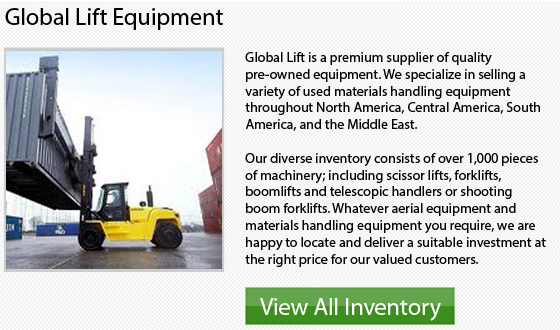
Lift truck operators are normally on the trucks more than 7 out of 8 hours per day in some forklift companies. Operators would be asked to always unload and load trucks all day long. A lot of of these operators do not need to consult with supervisors really often, neither do they have to deal with paperwork. Occasionally they are doing the same job during the shift for the duration and they don't even need to move the forks to adapt to different cargo. These operators usually find the counterbalanced sit-down units of forklifts a lot more comfortable and effective.
Maneuvering space depending on the location, some facilities have tons of room wherein lift trucks and machines could work in. In these circumstances, a 4-wheel electric or engine-powered lift truck remains an important player within the warehousing fleet.
Then again, other facilities are crammed to capacity. These facilities could have staging areas and shipping departments that offer limited space for forklift maneuverability. In this particular case, a stand-up end control or a 3-wheel electric lift truck units can appear to be a wiser choice.
You could determine how to select the right truck and choose the correct tire depending on your setting and specific tasks you will be performing. Next is a short profile to show you the various types of tires available.
Cushion Tire Trucks - These specific trucks are used and engineered for use only on asphalt or concrete surfaces. More commonly, they are specified for indoor work within distribution centres, warehouses and manufacturing facilities. Typically cushion tire forklifts are smaller than similar capacity pneumatic models; hence, they typically cost less. This makes their resale value much less also.
Pneumatic Tire Trucks - Pneumatic tire trucks could go indoors along with outdoors on improved surfaces. These surfaces consist of hard-packed dirt or blacktop and stones. Rough terrain locations like for example really plowed fields or potholed lots are not ideal. The trucks are equipped with a bigger frame. Normally, pneumatic tire trucks are more expensive compared to cushion tire units. With regards to resale, normally the pneumatic units provide higher value. This is in part due to the huge amount of maneuvering space they offer and their overall surface versatility.